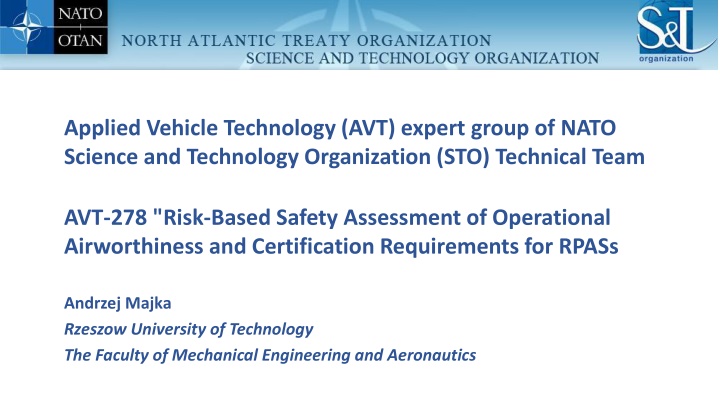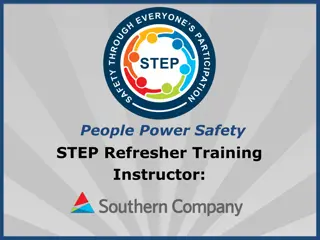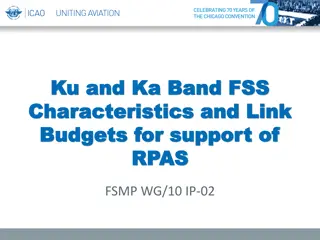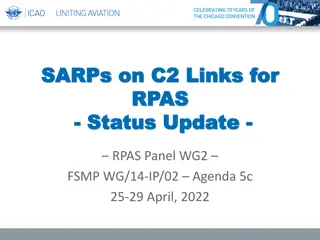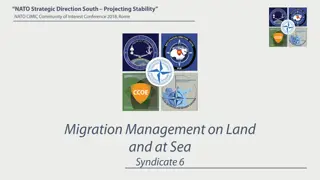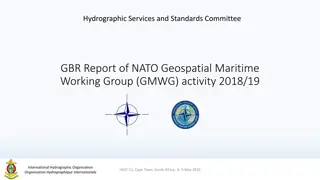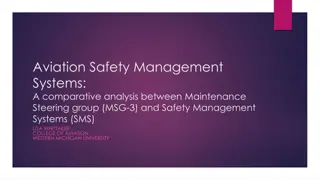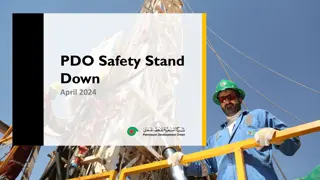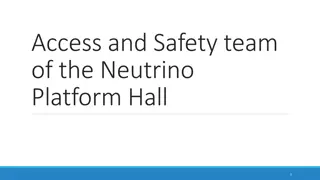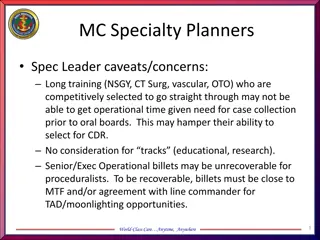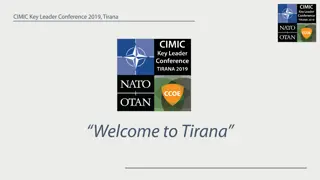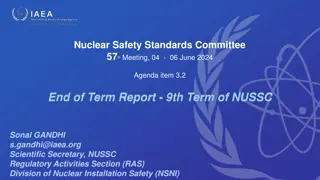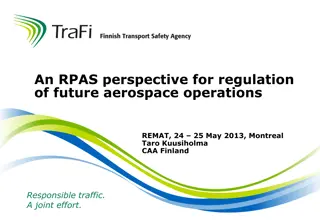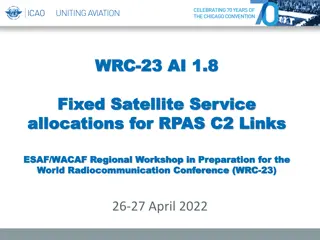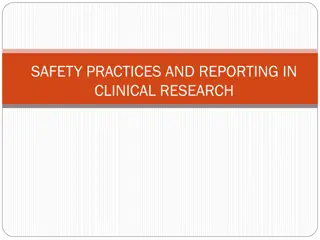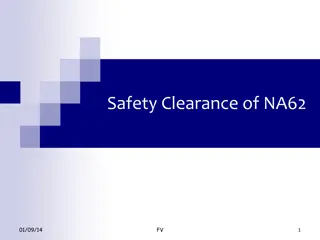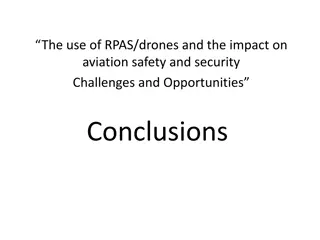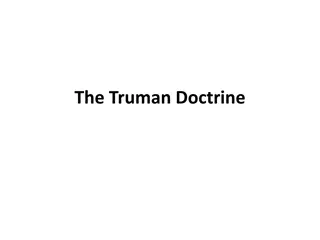NATO AVT Expert Group on RPAS Operational Safety
The NATO Science and Technology Organization's AVT-278 group focuses on risk-based safety assessments for RPAS operations. It aims to establish best practices for approval processes to enhance operational airworthiness and certification requirements, benefiting NATO members seeking to streamline operational approvals for RPAS missions.
Download Presentation

Please find below an Image/Link to download the presentation.
The content on the website is provided AS IS for your information and personal use only. It may not be sold, licensed, or shared on other websites without obtaining consent from the author.If you encounter any issues during the download, it is possible that the publisher has removed the file from their server.
You are allowed to download the files provided on this website for personal or commercial use, subject to the condition that they are used lawfully. All files are the property of their respective owners.
The content on the website is provided AS IS for your information and personal use only. It may not be sold, licensed, or shared on other websites without obtaining consent from the author.
E N D
Presentation Transcript
Applied Vehicle Technology (AVT) expert group of NATO Science and Technology Organization (STO) Technical Team AVT-278 "Risk-Based Safety Assessment of Operational Airworthiness and Certification Requirements for RPASs Andrzej Majka Rzeszow University of Technology The Faculty of Mechanical Engineering and Aeronautics
The mission of STO is to conduct and promote co-operative research and information exchange. STO consists of a three level organization: The Science and Technology Board (STB), the Panels and the Technical teams. The Mission of the Applied Vehicle Technology Panel (AVT) is to improve the performance, affordability and safety of vehicle platforms, propulsion and power systems through the advancement of appropriate technologies. The Panel addresses technology issues related to vehicle platforms, propulsion and power systems operating in all environments, including land, sea, air and space for both new and aging systems.
In many countries, military RPASs fly in national airspace only after obtaining special permits or approvals issued by the provider of air navigation services or by the competent authority. Only some civil and military authorities have issued airworthiness certificate for the use of unmanned aircraft. Moreover military RPASs must have special permission to operate in foreign countries.
The process for approving RPAS operations between NATO members varies significantly, creating a variety of problems for member nations involved in allied deployments and peacetime training. Additionally, the different processes place unnecessary duplication on nations seeking to export military technology or gain approvals to operate in the airspace of other allies.
AVT-278 will review approval processes for RPAS operations to establish best practice, with a focus on risk based methods, to generate a common baseline for the subsequent RTG (RTO Task Group) activity. NATO will benefit from a mutually acceptable basis for this approval process allowing member states to follow legitimate steps in planning and executing successful missions as will be evaluated by AVT-278.
The aim for AVT-278 is: A recommendation for a clear and baseline equivalent level of safety to assist in obtaining operational approvals (and civil acceptance) of RPAS operations utilised by NATO.
AVT-310 / Hybrid/Electric Aircraft Design and STAndards , Research and Technology (HEADSTART)
The primary aim of the AVT-310 activity is to establish a team of technical specialists dealing with hybrid/electric propulsion systems, and, based on their expertise a technical report detailing a research and development roadmap leading to a flying testbed/demonstrator programme is envisioned. Initially, brainstorming will take place in order to create a concept cloud of future use cases, which will then be tested for feasibility as the RTG work progresses. All application scenarios considered pertinent to military airborne systems, such as transportation of personnel/materiel as well as UAVs are to be considered, and, shall include CTOL/STOL/ESTOL/VTOL types.
